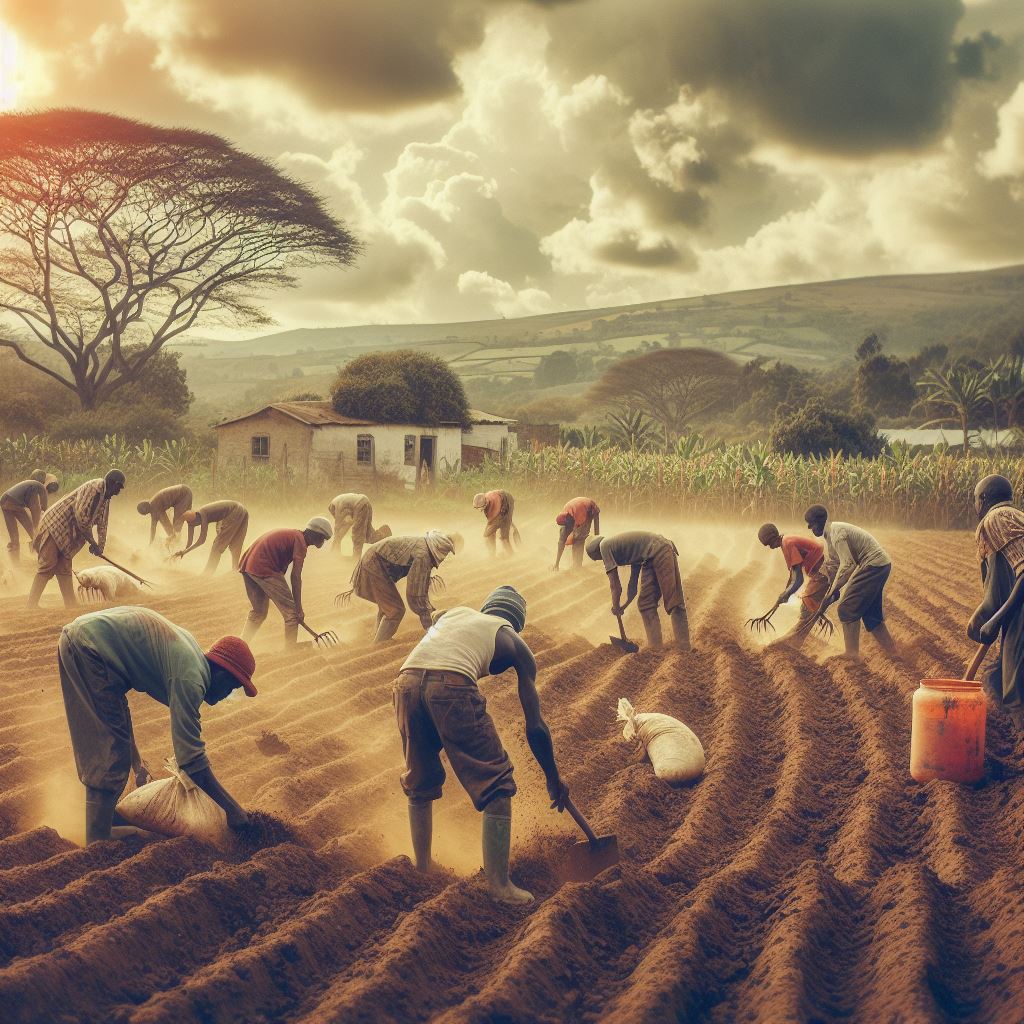In economics, the production process involves combining inputs or resources to produce goods and services. These inputs are known as the factors of production, and they are essential for the creation of economic value. The four primary factors of production are land, labor, capital, and entrepreneurship. In the context of South Africa, each of these factors plays a crucial role in driving economic activity and development. This article explores the four factors of production and gives an example of each.

Land
Land refers to all the natural resources that are used in the production process. It includes not only the surface of the earth but also the minerals, water, forests, and other natural resources found within it. Land is a finite resource and varies in quality and availability across different regions.
Example in South Africa:
- Agricultural Land: South Africa has vast tracts of agricultural land suitable for crop cultivation, livestock grazing, and forestry. For example, the fertile soils of the Highveld region are used for maize, wheat, and sunflower cultivation, while the grasslands of KwaZulu-Natal support extensive cattle farming.
- Mineral Resources: South Africa is rich in mineral resources, including gold, platinum, diamonds, coal, and iron ore. The Witwatersrand Basin, for instance, is renowned for its gold deposits, making South Africa one of the world’s leading producers of gold.
Labor
Labor refers to the human effort or workforce employed in the production process. It includes both physical and mental exertion provided by workers, ranging from manual laborers to skilled professionals. Labor is essential for operating machinery, providing services, and innovating new products and processes.
Example in South Africa:
- Mining Industry Workers: The mining sector in South Africa employs a significant portion of the labor force, including miners, engineers, geologists, and administrative staff. Workers in the mining industry extract and process mineral resources, contributing to the country’s economic output and export earnings.
- Manufacturing Workers: South Africa’s manufacturing sector employs workers in factories and production facilities across various industries, such as automotive, textiles, and chemicals. Skilled and semi-skilled workers are involved in assembling products, operating machinery, and quality control processes.
Capital
Capital refers to the physical and financial assets used in the production process to generate income or output. It includes machinery, equipment, buildings, infrastructure, and financial investments. Capital goods are used to produce consumer goods and services and are essential for increasing productivity and efficiency.
Example in South Africa:
- Industrial Machinery: South African industries rely on capital-intensive machinery and equipment for manufacturing and production processes. For example, in the automotive industry, advanced robotics and automated assembly lines are used to manufacture vehicles efficiently.
- Infrastructure Investments: Infrastructure projects, such as roads, railways, ports, and telecommunications networks, are crucial for facilitating economic activity and connecting regions within South Africa. Public and private investments in infrastructure contribute to economic growth, trade expansion, and job creation.
Entrepreneurship
Entrepreneurship refers to the ability and initiative to organize resources, take risks, and innovate new products, services, or business models. Entrepreneurs play a vital role in identifying opportunities, creating value, and driving economic growth through innovation and enterprise development.
Example in South Africa:
- Small Business Owners: South Africa has a vibrant entrepreneurial ecosystem, with many small and medium-sized enterprises (SMEs) operating across various sectors of the economy. Entrepreneurial ventures, such as tech startups, artisanal crafts, and agribusinesses, contribute to job creation, innovation, and economic diversification.
- Social Entrepreneurs: Social entrepreneurs in South Africa address social and environmental challenges through innovative business solutions. For example, organizations focused on renewable energy, sustainable agriculture, and community development initiatives demonstrate the transformative power of entrepreneurship in driving positive change.
Conclusion
In conclusion, the four factors of production—land, labor, capital, and entrepreneurship—are essential components of the production process and are critical for driving economic activity and development in South Africa. By harnessing the country’s natural resources, human capital, financial assets, and entrepreneurial spirit, South Africa can unlock its full potential for sustainable growth, job creation, and prosperity. However, addressing challenges related to land reform, labor market dynamics, access to finance, and fostering an enabling environment for entrepreneurship will be essential for maximizing the contributions of these factors to South Africa’s economic success.
